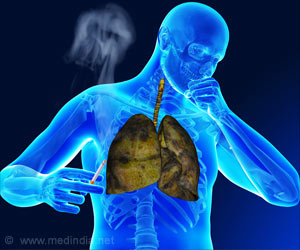
‘Over-reliance on TST test means that we are failing to detect and treat a potentially life-threatening infection in tens of millions of high-risk women.’
Tweet it Now
The researchers' aim in this study was two-fold: (1) to assess the accuracy of TB tests in diagnosing a highly contagious and world-wide public health scourge in patients who are doubly at risk and
(2) to find a method to identify which women carrying latent TB infection are most likely to develop active TB. In latent TB the individual is infected but does not show any symptoms.
Some individuals with latent TB go on to develop active TB --the form of the disease that causes symptoms in the carrier and transmission to others. While a healthy, functioning immune system can keep the infection in check, pregnancy and HIV infection, which compromise the immune system, increase the chances of developing active TB. Therefore, there is a critical need to improve diagnosis.
"The World Health Organization and many governments endorse the TST because it is a cheap and ubiquitous test," said lead study author Jyoti Mathad, MD, MSc, Instructor of Medicine in the Center for Global Health at Weill Cornell Medical College. "However, our over-reliance on this single test means that we are failing to detect and treat a potentially life-threatening infection in tens of millions of high-risk women. We found that QGIT positivity was almost three times higher than the more widely used TST at every time point tested," noted the authors.
Advertisement
"Our blood data suggests that pregnant women produce lower levels of the immune chemicals that many TB diagnostics look for. This finding has implications beyond diagnostics," said Dr. Mathad. "For example, not all pregnant women lose immune control of TB infection. But, currently we have no way of predicting which women are most likely to get sick from the disease. Our findings about these immune chemicals provide a starting point for developing a test that will tell us who in this already high-risk population is at greatest risk of disease and death and is in most need of treatment." She added that this insight about indicators of risk would also benefit other high-risk groups such as the elderly, young children and all people who are HIV positive.
Advertisement
Source-Eurekalert















